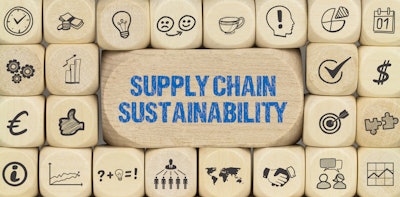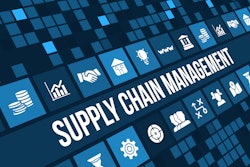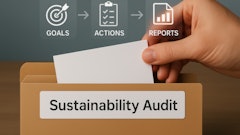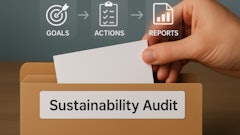
In an era of “greenwashing” and “greenhushing,” a truly sustainable, transparent and efficient supply chain is a must. Customers, regulators, board members and employees alike are calling for organizations to collectively work toward net zero and responsible business practices. Cross-border regulations are becoming stricter and more difficult to reach and pressure to reduce carbon footprints and environmental impact is coming from all sides.
Depending on the industry, up to 90% of a company’s carbon footprint can be attributable to its supply chain, making it crucial to ensure greater transparency in this area. And while supply chain executives know their efforts are the key to unlocking true sustainability, many don’t know where to start. For companies who may feel overwhelmed by the process of investing in more sustainable supply chains, you are not alone, and there are a few ways to tackle this journey head-on. By investing in supply chain partners you can trust, new technology for enhanced transparency and efficiency, and human expertise, you can find success and simultaneously contribute to the greater good.
Invest in Suppliers You Can Trust
A more sustainable supply chain starts with your chosen partners. Invest in suppliers who not only deliver quality products on time and on budget, but who also share your values and prioritize sustainability. Large enterprises often work with high numbers of vendors and supply chain partners, so it’s important to vet them carefully. The first step is to conduct a thorough assessment of all suppliers, analyze areas of risk and move forward with investing in like-minded partners.
Supply chain sustainability is a collaborative effort. Rather than simply cutting out vendors who do not reach sustainability standards, companies should support their suppliers on this journey and take corrective action to try to remedy the issues first. If that effort fails, a decision needs to be made for those vendors who do not follow sustainable practices – such as making conscious efforts towards decarbonization or complying with global standards around labor and human rights – as they pose significant reputational risk to your enterprise.
Invest in sustainability-conscious partners – those with good financial health, data and privacy policies, working conditions and environmental practices - who are also operating in markets you work in today and those you want to do business in tomorrow. This is not only necessary to comply with cross-border rules and regulations such as the California Transparency in Supply Chains Act and the German Supply Chain Act, but also a great opportunity to forge lasting, mutually beneficial relationships as your company grows.
Invest in Technology to Safeguard Reputations
The right technology can be a critical element for managing large, global supply chains, streamlining workflows and assessing reputational and sustainability risk.
At the end of 2022, EY conducted a survey about the sustainable supply chain across sectors. The research showed that “while many executives have long-term sustainability goals for their supply chains, few have the visibility, technology and comprehensive programs in place to measure their progress.”
An innovative all-in-one platform for sustainable supply chain management can help accelerate your sustainability journey. Those with a comprehensive, global network of previously vetted suppliers can speed onboarding for new companies. Risk profiles are quickly developed for each of your vendors and AI and machine learning can drive supply chain visibility and actionable insights for improved sustainability - a powerful tool for supply chain executives who are increasingly being asked to do more with less. It can also help companies stay ahead of competitors on strategy, stay compliant across global regulations and streamline ESG and compliance reporting – a critical aspect of ensuring a positive reputation and genuine and impactful sustainability practices.
Investing in Human Expertise
But as crucial as it is to invest in supply chain technology, one must not forget the importance of earned expertise. AI and technology free up time and streamline processes across sourcing, invoicing and inventory management, giving supply chain executives much-needed time back to focus on strategic tasks, their relationships with suppliers and show value across lines of business. But expert service and consulting from a trusted source can also be a difference-maker for those looking to make real impact and see a return on investment. Coupling technology solutions with human expertise can help supply chain executives see through blind spots and provide the scale to affect change without sacrificing additional knowledge and value.
There is no playbook when it comes to safeguarding corporate sustainability, but it is widely acknowledged that efforts begin and end with the supply chain. You must listen to your stakeholders and show them that they have been heard through real action toward sustainability efforts that genuinely address their concerns and priorities. Key investments in partners, technology and consultants can help pave the way.
Building sustainability and a strong supply chain management strategy is an ongoing process, and one that shouldn’t be taken lightly. But it is through targeted investments, increased transparency and data-backed compliance and reporting that we can ensure true environmental and social impact in addition to continued growth not just within our own companies, but across the entire business ecosystem.



















